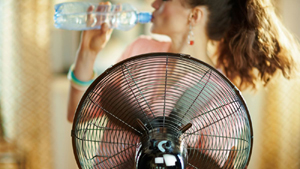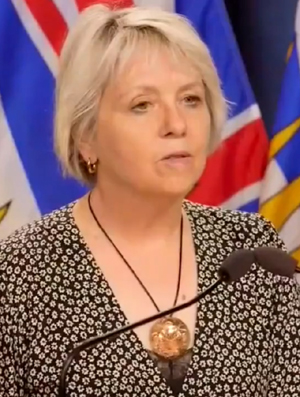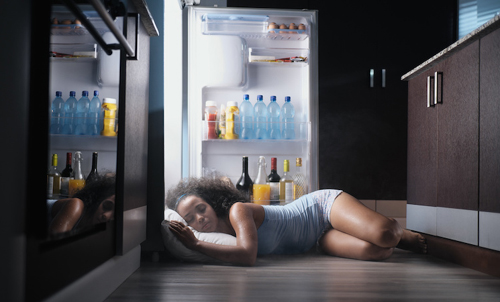Saturday July 3, 2021 | VICTORIA, BC
Commentary by Mary P Brooke, B.Sc., Editor | Island Social Trends
“COVID-19 is not the only emergency our province is facing. With rising temperatures and an unprecedented heat wave comes increased wildfire risk, and we are already seeing signs of a difficult wildfire season ahead for our communities,” it was stated in a BC Health statement yesterday.
That’s at the tail end of a heat wave that has resulted in hundreds of deaths. There were 719 deaths in BC in the seven days of June 25 to July 1, which is three times the usual number of deaths for the same time period, the BC Coroner said on Friday. By comparison, through the entire COVID-19 pandemic to date there have been 1,756 deaths in BC (as at July 2, 2021); the deaths in one week from heat numerically represent 40.9% of the COVID deaths.
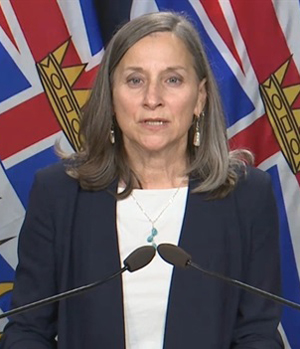
“We are releasing this information as it is believed likely the extreme weather BC has experienced in the past week is a significant contributing factor to the increased number of deaths,” said BC Chief Coroner Lisa Lapointe in her July 2 statement. She added that the downward trend in deaths — now that the weather is cooling back to near-seasonal-norms — is one that she hopes continues. She earlier discussed heat-related deaths on June 30 in a live media briefing.
Lapointe pointed out that some parts of the province are continuing to experience unusually high temperatures. “It remains important that we all take extra care to avoid the dangerous effects of severe heat,” she said, adding that people should look out for family, friends and neighbours, particularly those who live alone.
The Chief Coroner encourages people to review the advice on staying safe during extreme weather on this BC Government website: https://news.gov.bc.ca/releases/2021PSSG0043-001226. As well, the BC Centre for Disease Control has an information page on warm weather safety tips.
PHO & Health Minister:
“Our thoughts are also with those who have lost loves ones to the dangerous heat wave that continues to affect people and communities throughout the province,” said Dr Bonnie Henry and Adrian Dix within their joint COVID-19 statement on July 2.
Dr Henry and Minister Dix gave little to no reminders about heat safety in their briefings on June 22, 28 or 29 (that last one with the Premier about moving into Step 3 of the economic reopening following the current success of vaccination now after the third wave of COVID).
Insufficient public health messaging:
“The BC Centre for Disease Control and the provincial health officer are committed to working with the BC Coroners Service in reviewing the deaths related to the extreme heat to ensure we are prepared as best possible to prevent deaths in future heat waves in BC,” it was stated in the July 2 release. However, that came after the seven-day period where people died due to unmanaged conditions of heat in their homes.
Despite detailed and reliable weather forecasts and warnings about the coming ‘heat dome’ for several days prior to the June 25 onset of that weather phenomenon, there was no government messaging in TV, other digital news streams or in social media to roll out specific tips and recommendations for staying cool and hydrated.
Climate change is a public health emergency and needs to be treated like one, as articulated quite simply by the BC Greens this weekend.
Island Health was suitably focussed:
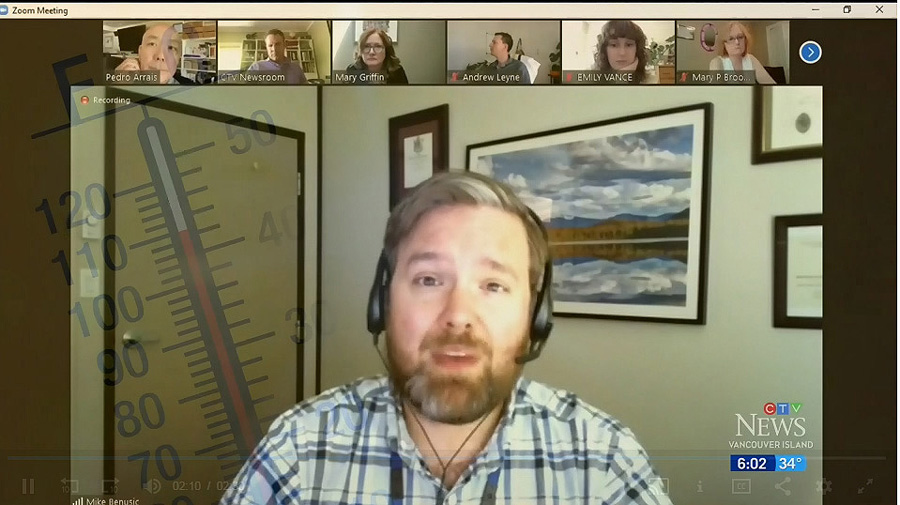
On Vancouver Island, the Island Health Authority did convene a group of media on Friday June 25 to speak with Dr Mike Benusic who undertook to inform their audiences with a range of newscasts, articles and Tweets.
Locally this appeared to be highly effective, and showed how Island Health realized that in our temperature island climate that people may not be accustomed to dealing with the serious health impacts of extreme heat stress which can lead to heat stroke.
The Premier’s messaging:
Premier John Horgan in a media availability June 29 said he felt it was the responsibility of Emergency Management BC to manage the heat wave messaging — but that work was essentially unseen. Horgan said that “fatalities are a part of life” when answering questions about more than 100 deaths across the province in this heatwave.
Horgan said he felt that the public was “acutely aware” of the upcoming period of extreme heat. That might have been so for people who regularly follow news announcements, though the Premier’s comments implied that people would also know what to do about the heat in their own circumstances.
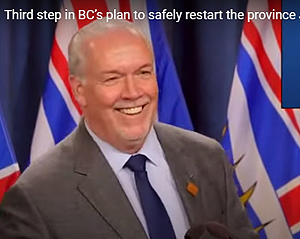
Further, as if the challenge was insurmountable, Horgan said: “We were doing our best to break through all of the other noise to encourage people to take steps to protect themselves. But it was apparent to anyone who walked out doors that we were in an unprecedented heat wave and again, there’s a level of personal responsibility.” He never articulated what that “noise” was — presumably all of his government’s own news about COVID and the economic reopening under Step 3. Otherwise, the news stream was carrying all the same amount and range of news as always.
“But I believe we did what we could to get information out and we rely also on the public press and media outlets who’ve done a really good job, in my mind, of making the case. Weather forecasters on all of the networks on radio were making the case, telling people to be wary and we have our Internet presence and social media doing that as well,” he said. But that’s not the same as the government presenting the heat wave as a distinct health threat, much as COVID has been.
“You can prepare for a whole bunch of things, but if you don’t have air conditioning — certainly, I don’t in my home — you can’t do much about it other than find other alternatives.” Again, that’s not the same as itemizing the health risks and issuing constant reminders about safety during the heat.
The Coroner fought back:
After Horgan made his comments on Tuesday June 29, Chief Coroner Lisa Lapointe issued a statement that same day June 29, saying there has been a “significant increase” in deaths reported where it is suspected extreme heat was a contributing factor.
She emphasized that the BC Government had issued a warning but implied that it really wasn’t followed up with any public messaging action.
“Environmental heat exposure can lead to severe or fatal results, particularly in older people, infants and young children and those with chronic illnesses,” the Chief Coroner said. “It is important that people are mindful of these risks and follow the guidelines shared last week by the Ministry of Public Safety and Solicitor General, including to drink plenty of fluids, keep cool by finding an air-conditioned building or seeking out the shade and, most importantly, regularly checking on loved ones and neighbours.”
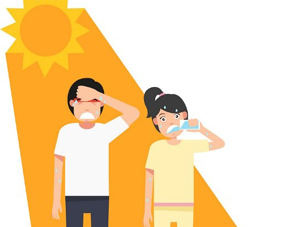
“The Coroners Service would normally receive approximately 130 reports of death over a four-day period. From Friday, June 25 through 3 pm on Monday, June 28, at least 233 deaths were reported. This number will increase as data continues to be updated,” Lapointe said.
In the Vancouver lower mainland area in particular, the services of paramedics were hours behind on responding to calls, which will have played a role in some of the heat-related deaths of older people who died alone in homes that had no air cooling.
Apparently about 40 to 50 percent of homes in BC have air conditioning. BC Hydro noted a spike of record-setting electricity usage during the three peak days of the heat wave, as people used air conditioning, fans, and other electrically-driven means to stay cool.
Now the messaging comes:
Heat stress which can lead to heat stroke is a medical concern and should be presented with its own set of health messaging (e.g. stay cool, stay hydrated, and tips on doing so) similar to what was eventually rolled out as reminders during COVID (e.g. keep physical distance, wash hands, wear masks, etc).
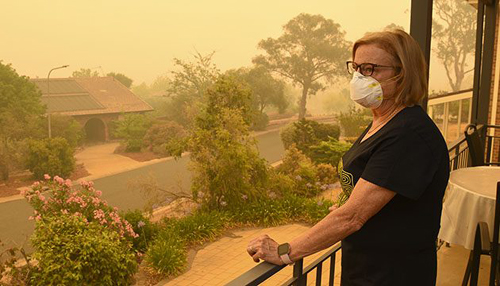
After so many deaths and a tone-deaf government response to the heat warnings by qualified meteorologists, now this came from BC Health within their COVID media release on July 2: “Please remember to reach out to family, friends or neighbours who may need a helping hand in the weeks to come. And remember to take care of yourself by staying hydrated and cool as temperatures rise in the weeks ahead.”
Another wildfire smoke season:
“Wildfire smoke can affect your health, especially for those who are more vulnerable, including seniors, young children, those with pre-existing chronic health conditions and people who are pregnant,” it was stated by BC Health on July 2.
Between smoky air from BC’s own wildfires and those of California — both of which have rapidly become the norm for the summer experience in BC — there is a real health challenge to be recognized and dealt with here.
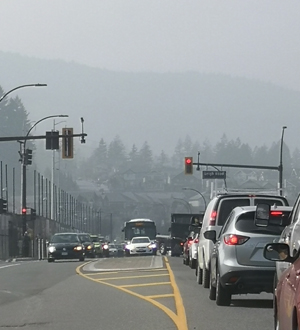
But so far there does not seem to be a lot of focussed messaging about air quality concerns from breathing smoky air. While the BC Centre for Disease Control has released so information on how you can protect your health this wildfire season at http://www.bccdc.ca/health-info/prevention-public-health/wildfire-smoke this is not the same as putting out a repetitive series of public messages with tips and reminders as heat or air quality becomes dangerous.
On the broader government level, Emergency Management BC and the Ministry of Public Safety and Solicitor General on July 2 announced that Disaster Financial Assistance (DFA) is now available for local governments and First Nations in regions that may have been impacted by wildfires that started June 16, 2021.
That still puts the onus on municipalities and local councils to execute what they think is best, and a lot of times that will be primarily around infrastructure offerings (e.g. cool malls to walk in, or keeping an air conditioned rec centre open for longer hours) which falls very seriously short of the widest range of needs of residents. Individuals were given tips on how to donate to organizations such as Food Banks BC and the Canadian Red Cross.
No focus on households yet:
So far there is no mention of household subsidies for getting air conditioning or air filtering. This is where the assistance is truly needed, right in people’s homes. In the combination of very hot weather and smoky air, windows should be opened (for cooling) but cannot be opened (due to smoky air).
Subsidies similar to what were issued during COVID — to individuals and businesses — might be appropriate now as the heat-smoke combo problem looms.
===== LINKS:


